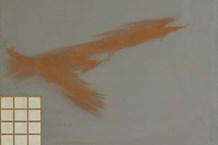Andrew Banks, partner at law firm Stone King, also believes prosecutors will now have to undertake scientific analysis of any suspect items before proceeding to court.
His views, set out in a comment piece in ATG, follow the collapse of two cases that proceeded on the basis that it was up to the defendant to prove the age or type of the species being sold.
Mr Banks recently represented a client in relation to the sale of a modern crocodile skin handbag. Although professional advice taken before the sale suggested the bag did not require an Article 10 certificate on the grounds that the animal was farmed, Mr Banks' client was subsequently asked to prove definitively both the exact species and whether or not the handbag had been made from a wild crocodile.
The prosecution went ahead despite the bag having been shipped overseas prior to the investigation, meaning it was not available for analysis.
The prosecution's view was that the defendant could "employ whoever they like for advice but it was up to them to prove it [the item] was correct", not for the prosecution to prove that it was in breach of the law.
However, the case was ultimately withdrawn.
Case Comparison
In his comment, Mr Banks compares this case to that of Chanticleer Antiques, heard before Isleworth Crown Court in November. That saw Portobello Road dealer Sally Wilkinson charged with the sale, in 2013, of an ivory carving of a nude that police from the Wildlife Crime Unit and the Arts and Antiques Unit believed had been 'worked' after June 1947 in contravention of CITES rules. The prosecution did not date the article definitively but proceeded on the basis that it was up to the defendant to prove it was carved before 1947. At the eleventh hour, the case was dropped.
Despite the uncertainties that hang over the implementation and interpretation of CITES regulations, Mr Banks believes the outcome of the two cases "would seem to offer at least some hope of a more pragmatic approach to prosecutions". The costs involved in subjecting ivory or other organic material to laboratory analysis are considerable (between £500 and £2000) but may ultimately prove necessary.
"My personal view is that it is imperative in the majority of cases that the CPS obtain forensic testing. The onus is on them [not the seller] to prove what the specimen is and unless it is obvious it will be up to the CPS to obtain that evidence," added Mr Banks.
The one successful recent prosecution in this area saw Chiswick Auctions fined £3200 in October for the sale of a modern carved elephant tusk. In this case Chiswick pleaded guilty after scientific tests proved the tusk came from an elephant that died in the 1960s.
They have since said they will no longer sell ivory of any date.





